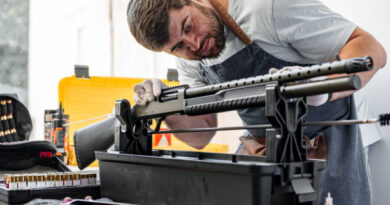Exploring the Different Types of Tattoo Machines
Tattoo machines, also known as tattoo guns, are the essential tools used by tattoo artists to create intricate and stunning tattoos. These machines have evolved over the years, offering a range of options to suit different artistic styles and personal preferences. Understanding the different types of tattoo machines can help both tattoo artists and enthusiasts make informed choices. In this blog, we will explore the various types of tattoo machines commonly used in the industry.
- Coil Tattoo Machines:
Coil tattoo machines, also known as traditional tattoo machines, are the most widely recognized and commonly used type. They are powered by electromagnetic coils that create the mechanical motion needed for the tattoo needle to penetrate the skin. Coil machines offer versatility and precision, making them suitable for various tattooing styles, including lining, shading, and coloring. These machines can be tuned and adjusted to achieve different needle speeds and stroke lengths, providing artists with greater control over their work.
- Rotary Tattoo Machines:
Rotary tattoo machines have gained popularity in recent years due to their quiet operation, smoothness, and ease of use. Instead of electromagnetic coils, they use a rotating motor to drive the needle. Rotary machines are known for their consistent and fluid motion, making them ideal for intricate details and smooth shading. They can be used for both lining and shading, and some models allow for quick adjustment between different needle configurations. Rotary machines are also lighter and more compact than coil machines, reducing hand fatigue during long tattooing sessions.
- Pen Tattoo Machines:
Pen tattoo machines resemble a pen or a small handheld device, hence the name. They are a type of rotary machine but with a pen-like shape, providing a more ergonomic and comfortable grip for the artist. Pen machines are highly versatile and can be used for various tattooing techniques, including lining, shading, and coloring. They offer precise control and are particularly favored for fine lines, dotwork, and intricate designs. The lightweight and compact design of pen machines make them easy to maneuver, allowing artists to create detailed and intricate tattoos with ease.
- Pneumatic Tattoo Machines:
Pneumatic tattoo machines, also known as air-powered machines, utilize compressed air to drive the needle. These machines offer quiet operation and minimal vibration, making them suitable for artists and clients who prefer a less intrusive tattooing experience. Pneumatic machines are often used for specialized applications, such as permanent makeup or cosmetic tattooing, where precision and gentleness are crucial. They are also a popular choice for artists with a focus on hyper-realism or highly detailed black and gray tattoos.
- Hybrid Tattoo Machines:
Hybrid tattoo machines combine elements of both coil and rotary machines, offering the advantages of each type. They typically have a rotary motor with a mechanical system that mimics the motion of a coil machine. Hybrid machines provide artists with the best of both worlds, offering the smoothness and precision of rotary machines along with the power and versatility of coil machines. They are particularly popular among artists who value versatility and want the ability to switch between different tattooing styles seamlessly.
Conclusion:
The world of tattoo machines offers a variety of options to suit the diverse needs and preferences of tattoo artists. From the traditional coil machines to the modern rotary, pen, pneumatic, and hybrid machines, each type has its own unique characteristics and advantages. Whether you’re an artist looking to explore new techniques or a tattoo enthusiast interested in understanding the tools behind the art, knowing the different types of tattoo machines can deepen your appreciation for the craft and help you make informed decisions about your tattooing journey.


